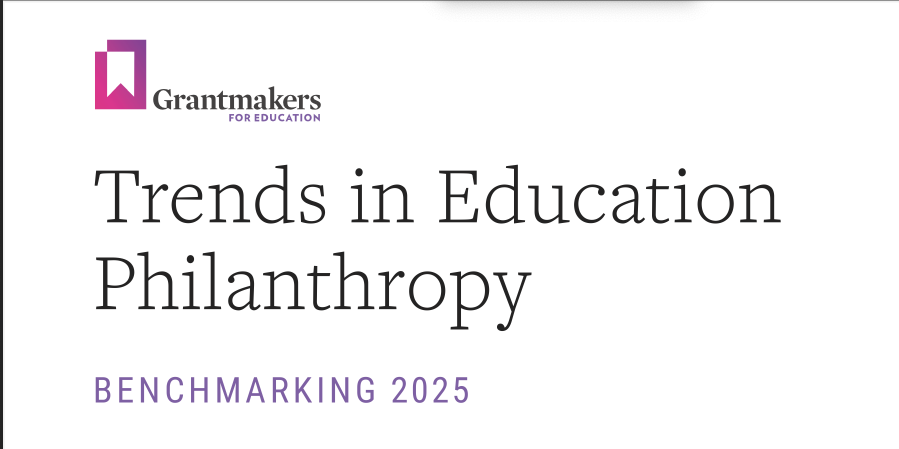Resources
Knowledge begins here
but never ends.
Curated reports, deep research, informational articles, podcasts. Everything you need to stay well
informed in the world of education grantmaking.
Trends in Education Philanthropy: Benchmarking 2025

Our Trends in Education Philanthropy: Benchmarking report, based on the latest survey of education grantmakers, offers insights into where and how funders are working and their evolving priorities.
2025 Annual Conference & 30th Anniversary Sponsorship
Celebrating 30 Years of Grantmakers for Education
.
FILTER RESOURCES
SEARCH RESOURCES
2020 Kids Count Data Book
The 31st edition of the Annie E. Casey Foundation's KIDS COUNT® Data Book describes how children across the United States were faring before the coronavirus pandemic began.
This year’s publication continues to deliver the Foundation’s annual state rankings and the latest available data on child well-being. It also identifies multi-year trends — comparing statistics from 2010 to 2018. As always, policymakers, researchers and advocates can continue using this information to help shape their work and build a stronger future for children, families and communities.
All of Who I Am
Improving Early Childhood Education Systems
50-State Comparison: Teacher License Reciprocity
Teacher license reciprocity allows educators who hold a teaching license in one state to earn a license in another state, subject to meeting state-specific requirements. Reciprocity agreements allow states to work through variations in licensing systems to coordinate license transfers and fill vacant teaching positions with qualified candidates. Most states have policies in place to extend reciprocity for certain teachers, but few states provide full reciprocity for all fully licensed teachers from other states.
Supporting Students to be Independent Learners: State and District Actions for the Pandemic Era
In May 2020, the Aspen Institute Education & Society Program shared ten recommended state actions for Fostering Connectedness in the Pandemic Era that were developed with a diverse group of education leaders. The pandemic and resulting closure of school buildings have revealed the deep inequities that already existed in many schools, and connectedness is one of those gaps. Data from school climate surveys demonstrates that students of color, English-learners, and students from low-income families do not feel safe at school, in part because they do not have the kind of caring, trusted relationships that create belonging – and in part because they do not feel challenged with meaningful, rigorous work.
Finding the Goldilocks Zone in Policy Influence: Five Considerations for Funders Seeking to Get It “Just Right”
Submit A Resource
Expand your audience by expanding minds.
We believe in getting research and insights into more hands to support learning for our peers and community. Share your resources that would be useful to education grantmakers.






